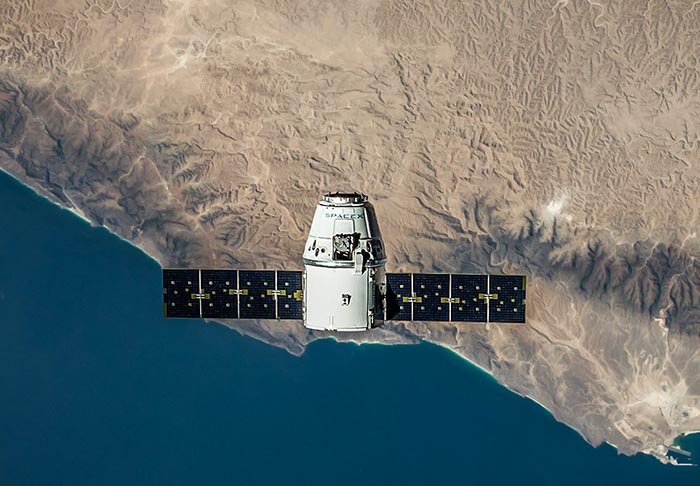According to reporting from Antara News, Indonesia’s Maritime Affairs and Fisheries Ministry is exploring potential cooperation opportunities in technology with Kongsberg Satellite Service (KSAT), a Norwegian spacecraft communication services provider, to bolster the implementation of blue economy work programs.
Sakti Wahyu Trenggono, Indonesia’s Maritime Affairs and Fisheries Minister, said in a statement received by Antara News on Sunday (28/1/24,) that “KSAT has the capacity and experience in earth observation satellites, the development of hardware and software for maritime surveillance, as well as ship detection, to monitor illegal activities at sea.”
He explained that the KSAT satellite technology can be used in various maritime and fisheries sub-sectors. Not only can they detect ships carrying out illegal activities, but they can also provide environmental surveillance services to be able to analyze data from early warnings on marine pollution threats, says Antara News.
“This satellite can also monitor algae blooms and aquaculture. Thus, if we synergize the technology with the technology that the KKP (Ministry) already has, the results will be stronger. We are still exploring this,” Trenggono said.
Meanwhile, Executive Vice President for Space and Surveillance for Kongsberg Defence and Aerospace, Harald Aaro, who received the visit of Minister Trenggono, stated that at least 21-countries have received services in the maritime and fisheries sectors.
They include the construction of nanosatellites, earth stations for satellite command and control, supervision of fishing vessel operations, and oil spills.
According to Antara News, five blue economy programs have been launched by the Ministry of Maritime Affairs and Fisheries, including the expansion of marine conservation areas, the implementation of a measured fishing policy, and the sustainable development of aquaculture.
They also include monitoring and controlling the use of coasts and small islands, as well as marine plastic waste handling with fishers’ participation.
Those five programs are implemented to ensure ecological sustainability as well as encourage economic growth in the community and increase state income.
Source: Antara News


